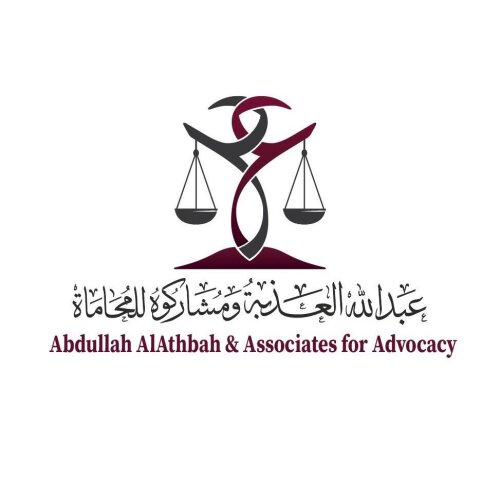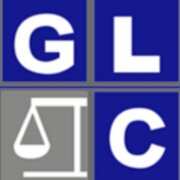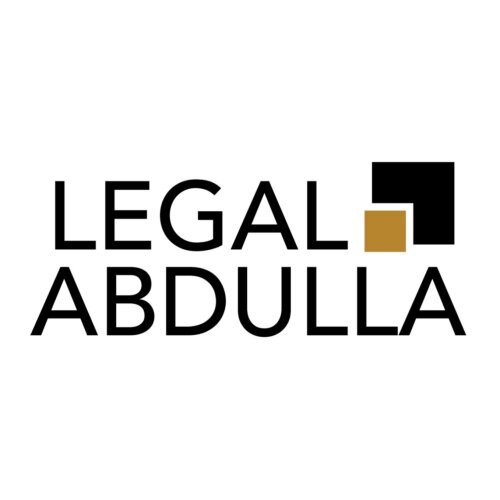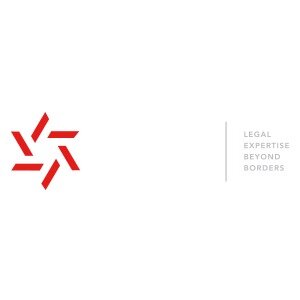Best Tax Increment Financing Lawyers in Qatar
Share your needs with us, get contacted by law firms.
Free. Takes 2 min.
Or refine your search by selecting a city:
List of the best lawyers in Qatar
About Tax Increment Financing Law in Qatar
Tax Increment Financing (TIF) is a public financing method used for subsidizing infrastructure and community improvement projects. In Qatar, TIF is emerging as a strategic mechanism to promote urban development and enhance economic growth. It allows the future tax revenue generated from an increase in property value in a specific area to fund current improvements in that area. This financial tool helps make projects feasible that otherwise might not attract investment.
Why You May Need a Lawyer
There are several situations in which you might need legal assistance with TIF in Qatar:
- If you're a developer looking to finance a new project using TIF, understanding the complex legal and regulatory frameworks is crucial.
- Property owners might require a lawyer when their property falls within a TIF district to comprehend potential impacts on property taxes and future assessments.
- Public officials may need legal guidance to navigate the intricacies of implementing TIF projects responsibly and legally.
- For investors, ensuring due diligence and clarity on the return on investment involving TIF projects is vital.
Local Laws Overview
The local laws governing Tax Increment Financing in Qatar focus on the regulation of public-private partnerships and infrastructure funding. Key aspects include:
- Regulations on establishing TIF districts and eligible improvements.
- Legislative requirements for approval from local government bodies.
- Guidelines for public-private partnerships specific to TIF projects.
- Tax regulations affecting property values and the forecasting of future tax increments.
These laws are often influenced by broader economic policies and urban development plans aligned with Qatar's Vision 2030.
Frequently Asked Questions
What is Tax Increment Financing?
Tax Increment Financing is a public finance technique that uses future tax increments to subsidize current development and infrastructure projects.
How does TIF work in Qatar?
TIF in Qatar functions by designating a district where anticipated increases in property tax revenue are used to fund improvements within that area.
What types of projects are eligible for TIF?
Projects that typically qualify for TIF include infrastructure upgrades, affordable housing developments, and community revitalization initiatives.
Who can apply for TIF?
Developers, local government entities, and other stakeholders involved in eligible development projects can apply for TIF benefits.
Are there risks associated with TIF?
Yes, potential risks include fluctuating property values, insufficient tax increment generation, and complex financial liabilities.
Do property owners within a TIF district face increased taxes?
Generally, property taxes do not increase directly due to TIF. Instead, the increment based on value appreciation funds improvement projects.
Can TIF affect existing municipal services?
It's possible if the revenue projections are inaccurate, leading to budget reallocations that impact municipal services.
How can legal advisors assist with TIF projects?
Legal advisors can provide expertise in navigating regulatory environments, securing approvals, drafting contracts, and ensuring legal compliance.
What are the benefits of pursuing TIF in Qatar?
Benefits include enhanced infrastructure, increased development potential, and stimulation of economic growth in targeted areas.
What should be considered before applying for TIF?
Considerations include the feasibility and long-term viability of the project, alignment with governmental plans, and potential impacts on the community.
Additional Resources
Individuals seeking further information on TIF in Qatar might find these resources helpful:
- Qatar's Ministry of Finance for policies on public-private partnerships.
- The Urban Planning Department for data on development plans and district designations.
- Local Chambers of Commerce for insights into business and investment opportunities.
- Professional legal associations offering directories for specialized legal advice.
Next Steps
If you require legal assistance with Tax Increment Financing in Qatar, consider the following steps:
- Conduct preliminary research to understand the basic concepts and regulations related to TIF.
- Identify reputable law firms or legal advisors specializing in finance and urban development.
- Consult with professionals to assess your project's eligibility and viability for TIF.
- Engage with relevant governmental bodies to understand approval processes and requirements.
- Review and draft necessary legal documentation with professional assistance to ensure compliance with local laws.
Taking these steps can help streamline the process and increase the likelihood of successful project execution using TIF in Qatar.
Lawzana helps you find the best lawyers and law firms in Qatar through a curated and pre-screened list of qualified legal professionals. Our platform offers rankings and detailed profiles of attorneys and law firms, allowing you to compare based on practice areas, including Tax Increment Financing, experience, and client feedback.
Each profile includes a description of the firm's areas of practice, client reviews, team members and partners, year of establishment, spoken languages, office locations, contact information, social media presence, and any published articles or resources. Most firms on our platform speak English and are experienced in both local and international legal matters.
Get a quote from top-rated law firms in Qatar — quickly, securely, and without unnecessary hassle.
Disclaimer:
The information provided on this page is for general informational purposes only and does not constitute legal advice. While we strive to ensure the accuracy and relevance of the content, legal information may change over time, and interpretations of the law can vary. You should always consult with a qualified legal professional for advice specific to your situation.
We disclaim all liability for actions taken or not taken based on the content of this page. If you believe any information is incorrect or outdated, please contact us, and we will review and update it where appropriate.
Browse tax increment financing law firms by city in Qatar
Refine your search by selecting a city.

















